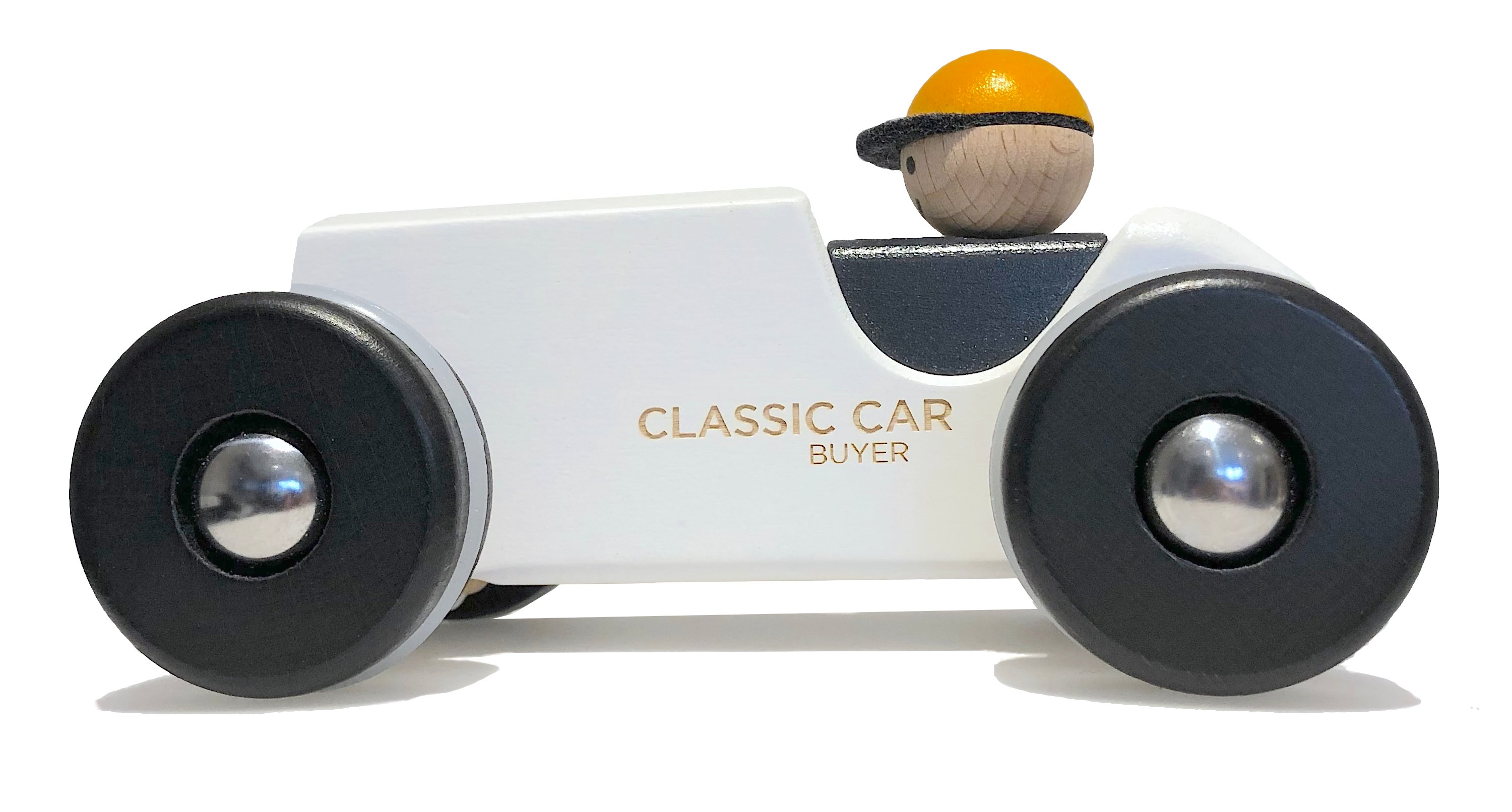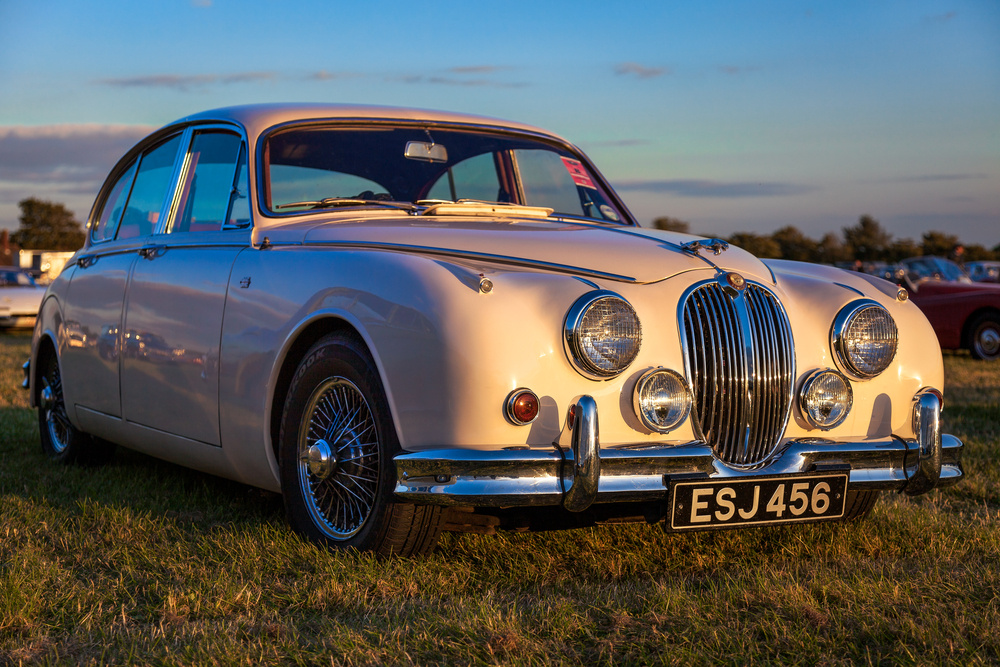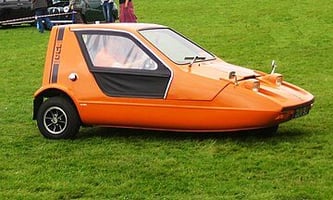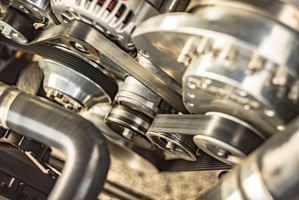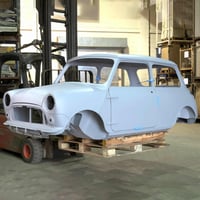There can be no doubt that the Bond Bug is one of the most eccentric and recognisable vehicles to...
Over the years, private number plates have become increasingly popular in the UK, offering drivers a chance to personalise their car while potentially also adding value to it. Whether you’re looking to make your car stand out, perhaps hide its age (surely not!) or invest in something that could appreciate over time, a personalised plate might be something you feel is worth looking into. Here’s everything you need to know about getting, using and selling private number plates in the UK - including some specific tips for classic car owners.
What is a private number plate?
A private number plate (also known as a personalised registration) is a registration mark that differs from the standard age-related plates issued by the DVLA. They often feature names, initials or a memorable combination of letters and numbers.
In the UK, all registration numbers must follow strict DVLA guidelines to ensure they remain legally compliant, but there’s plenty of scope for some creativity within those rules.
How can I buy one?
There are three main ways to buy a private number plate in the UK:
Direct from the DVLA
The DVLA holds regular auctions - 9 per year - for sought-after plates and sells thousands directly via their website. This is often the most straightforward and cost-effective route.
Number plate dealers
Specialist number plate dealers offer a wide variety of plates, including rare combinations. However, prices can vary significantly so do some research before jumping in.
Online auctions and marketplaces
Websites such as eBay often list private number plates for sale, but you’ll need to ensure the seller can provide the correct documentation to go with it, to avoid being scammed.

Registering your private number plate
Once you’ve purchased your plate, you must register it with the DVLA before displaying it on your vehicle. Here’s how to do that:
Get the V750 certificate of entitlement
If buying new, you’ll get a V750 certificate from the DVLA. If transferring from another vehicle, you’ll need a V778 retention document.
Assign the plate to your car
Visit the DVLA website and follow the steps to assign your new plate. You’ll need your vehicle’s logbook (V5C) and the V750/V778.
Get the plates made (you’ll need two!)
Use a DVLA-registered number plate supplier to have your physical plates made. You’ll need to show some identification and proof of ownership.
Tell your insurance provider
Ensure your insurance policy is updated to reflect your new registration number. You will also need to update your registration number for parking apps that you use, and automatic payment accounts such as tolls, congestion charges and emission zones (such as ULEZ).
The rules for displaying private number plates
Your new plate must adhere to strict DVLA rules, which are that it must follow the correct format, font and spacing requirements. The plates must be reflective, with a white background at the front and a yellow one at the rear, and there must be no decorative patterns or background images, although certain specific flags and national identifiers are allowed. Any failure to meet these requirements can result in a fine of up to £1000, and also your vehicle failing its MOT.
You also can’t have a number plate that makes a car look newer than it actually is, for example, having an ’08’ reg number on a car that is 2002 registered.

Selling a private plate
If you decide to sell your private plate, you can do so as a private seller. The DVLA say that you shouldn’t share a picture of the V750 or V778 documents online when selling, as someone could possibly use those without your knowledge to get their own plates made up. Specialist dealers or auction houses can help you sell your plates, particularly those with desirable letter combinations or low-digit formats.
There are also two other options you could choose:
Sell it with the vehicle
This is the simplest method but may reduce the car’s resale value if the buyer isn’t interested in buying the personalised registration.
Retain the plate for future use
If you apply for a V778 retention document, you can remove the plate from your car and keep it for future use or sale. This costs £80 and must be done through the DVLA. Your V778 retention document proves that you still have the right to assign the private number for the next 10 years - you’ll need to renew this though at the ten year point, if it’s not being used on a vehicle.
Private number plates and classic cars
If you own a classic car, there are a few key points to keep in mind:
Maintaining age authenticity
While a personalised plate can add character, remember that placing a newer-style plate on a classic car could spoil its period-correct look.
MOT requirements
If you want to change to a personalised plate and you have an historic (classic) vehicle you’ll also need a current MOT certificate, even if your vehicle is usually exempt from MOTs.
Historic status
Classic vehicles with ‘historic vehicle’ tax status must still adhere to registration rules. A plate that appears newer than the car’s original registration date is not permitted.
A potential increase in value
A carefully chosen private plate could potentially increase your classic car’s desirability, especially if it relates to the car’s make, model, or year.

Are private plates a good investment?
Private number plates can appreciate in value, particularly those with short letter combinations, popular names or number sequences with significant meaning, for example ‘JOHN123’. However, the market can be unpredictable, so it may be wise to view private plates as a fun addition rather than an actual guaranteed financial gain.
Some final thoughts…
Do your research!
Do check past auction results to get a good understanding of current plate values.
Watch out for scams…
Ensure all your transactions are handled securely, and only use trusted sellers.
Keep your documents safe
Make sure you retain your V750 or V778 certificates, keeping them in a safe place, for proof of ownership.
Whether you’re just looking to customise your car, or investing in something unique, a private number plate can be a rewarding and fun addition. With proper research done, it’s a simple way to make your car stand out - and maybe, perhaps even turn a profit in the future!


